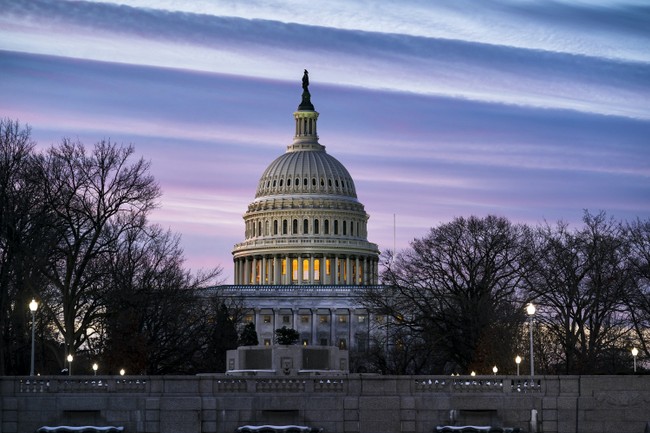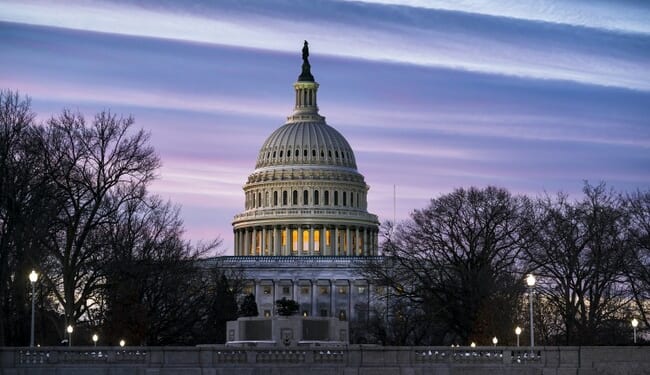
There’s a war brewing between Maine and Nebraska over both states’ practice of awarding electoral votes based on which candidate wins individual congressional districts.
The Nebraska unicameral legislature is ready to make their state a “winner-take-all” electoral state, giving one more electoral vote to Donald Trump. In the past, very red Nebraska would award one electoral vote to the Democratic candidate based on results from Omaha and its suburbs. The other four votes would go to the Republican candidate.
In Maine, the vote away from Portland, Augusta, and nearby coastal areas went to Donald Trump in 2020, giving the former president one electoral vote of Maine’s four. Now, Maine is threatening to also move to a “winner-take-all” system that would almost certainly deny Donald Trump an electoral vote.
In Nebraska, Donald Trump allies have convinced GOP Governor Jim Pillen to call a special session of the legislature in order to pass the change to winner-take-all.
“I am steadfast in my commitment to get winner-take-all over the finish line, thereby honoring our constitutional founding, unifying our state and ending the three-decade-old mistake of allocating Nebraska’s electoral votes differently than all but one other state,” Pillen had said.
It won’t be a sure thing. Democrats can filibuster the change and probably will. There are parliamentary maneuvers that Nebraska Republicans can make to overcome the filibuster but it’s something of an uphill climb.
But Maine Democrats aren’t going to take the change in Nebraska lying down.
“Voters in Maine and voters in Maine’s 2nd Congressional District value their independence, but they also value fairness and playing by the rules,” House majority leader, Maureen Terry said. “If Nebraska’s Republican governor and Republican-controlled Legislature were to change their electoral system this late in the cycle in order to unfairly award Donald Trump an additional electoral vote, I think the Maine Legislature would be compelled to act in order to restore fairness to our country’s electoral system.”
We’re not running for senior class president here. This is for the presidency of the United States. There’s absolutely nothing “unfair” about Nebraska choosing to change the way it allocates its electoral votes.
“It is my hope and the hope of my colleagues in Maine that the Nebraska Republican Party decides not to make this desperate and ill-fated attempt to sway the 2024 election,” Terry said.
But Nebraska GOP lawmakers have sought to amend their current system in order to cut off the possibility that Biden could, as he did in 2020, earn an electoral college vote by winning the state’s Omaha-district. A bill to turn the state into winner-take-all has languished in the Legislature. But at the encouragement of Trump allies, Gov. Jim Pillen, has endorsed calling a special session to try and push it through. It would still need to pass a Democratic-led filibuster, though the margin is extremely close.
But even if Governor Pillen called a special session, the outside pressure from Trump supporters isn’t going over well in the fiercely independent Republican legislature.
“One Republican senator, who spoke on condition of anonymity, said the measure does not have ‘anywhere close to 33 votes’ to pass and said the outside pressure was costing the measure votes,” according to the Nebraska Examiner.
Statewide, Nebraska has voted Republican in every presidential election since Lyndon Johnson in 1964. But the Omaha-based 2nd Congressional District has swung to Democrats twice, in 2008 for President Barack Obama and in 2020 for President Joe Biden.
Maine has similarly voted Democratic since 1988, when part-time Kennebunkport resident George H.W. Bush won the state and its four electoral votes. But Maine’s rural 2nd District sent an electoral vote to Republicans in 2016 and 2020.
Does one electoral vote really matter? There are several election scenarios where one electoral vote gets a candidate to 270 and victory. The two sides wouldn’t be so intense about the issue otherwise.

